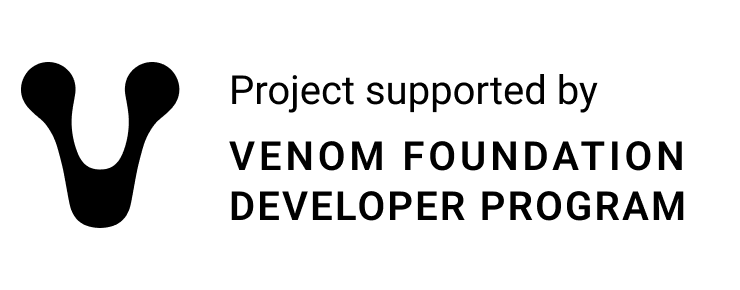Deploy artifacts plugin
Locklift plugin that enables you to store build artifacts across contract migration scripts.
Installation
- Install plugin.
npm i --save-dev locklift-deploy-artifacts- Initialize the plugin via the
locklift.config.tsfile.
// locklift.config.ts
// ...
import { FactorySource } from "./build/factorySource";
import { DeployArtifactsExtension } from "locklift-deploy-artifacts";
import "locklift-deploy-artifacts";
declare module "locklift" {
export interface Locklift<FactorySource> extends DeployArtifactsExtension<FactorySource> {}
}
// ...Usage
The deploy artifacts plugin provides methods to interact with the build artifacts.
deployContract()
This method deploys a contract and saves its artifacts to the ./artifacts directory.
It takes arguments:
-
alias- the alias of the contract -
version- the version of the contract, use "latest" to increment version -
args- the deployment parameters, the same as you use atlocklift.factory.deployContract() -
deployFn- the function to deploy contract, default valuelocklift.factory.deployContract
const { contract, tx } = await locklift.deployArtifacts.deployContract(alias, version, args);getArtifacts()
This method returns an object with the current state of the build artifacts:
// scripts/get_deploy_artifacts.ts
import { IDeployArtifacts } from "../artifacts/artifacts";
const artifacts = locklift.deployArtifacts.getArtifacts<IDeployArtifacts>();
console.log("SampleA contract address", artifacts.local.SampleA.v0.address)reset()
This method deletes all artifacts and resets storage:
locklift.deployArtifacts.reset();getContract()
This method returns the instance of the deployed contract.
// scripts/get_deployed_contract.ts
import { IDeployArtifacts } from "../artifacts/artifacts";
async function main() {
const artifacts = locklift.deployArtifacts.getArtifacts<IDeployArtifacts>();
const sampleAv0 = locklift.deployArtifacts.getContract(artifacts.test.Sample.SampleA.v0);
const details = await sampleAv0.methods.getDetails().call();
console.log("details", details);
}
main()
.then(() => process.exit(0))
.catch(e => {
console.log(e);
process.exit(1);
});deploy contract with locklift-deploy-private plugin
// locklift.config.ts
import { LockliftConfig } from "locklift";
import { FactorySource } from "./build/factorySource";
import { DeployArtifactsExtension } from "locklift-deploy-artifacts";
import { LockliftConfigExtension, PrivateDeployerExtension } from "locklift-private-deploy";
import "locklift-deploy-artifacts";
import "locklift-private-deploy";
declare module "locklift" {
export interface Locklift<FactorySource>
extends DeployArtifactsExtension<FactorySource>,
PrivateDeployerExtension<FactorySource> {}
export interface LockliftConfig extends LockliftConfigExtension {}
}
declare global {
const locklift: import("locklift").Locklift<FactorySource>;
}
const LOCAL_NETWORK_ENDPOINT = "http://localhost/graphql";
const VENOM_TESTNET_ENDPOINT = process.env.VENOM_TESTNET_ENDPOINT || "https://jrpc-testnet.venom.foundation/rpc";
const VENOM_TESTNET_TRACE_ENDPOINT =
process.env.VENOM_TESTNET_TRACE_ENDPOINT || "https://gql-testnet.venom.foundation/graphql";
const config: LockliftConfig = {
privateRPC: "https://private-rpc.com/rpc",
// ...
}// scripts/deploy.ts
async function main() {
console.log("Starting Sample contract deployment...");
const signer = (await locklift.keystore.getSigner("0"))!;
const { contract: sample } = await locklift.deployArtifacts.deployContract(
"SampleA",
"latest",
{
contract: "Sample",
publicKey: signer.publicKey,
initParams: { _nonce: locklift.utils.getRandomNonce() },
constructorParams: { _state: 0 },
value: locklift.utils.toNano(1),
},
locklift.privateRPC.deployContract, // specify deploy function here
);
console.log("sample contract address:", sample.address.toString());
}
main()
.then(() => process.exit(0))
.catch(e => {
console.log(e);
process.exit(1);
});

